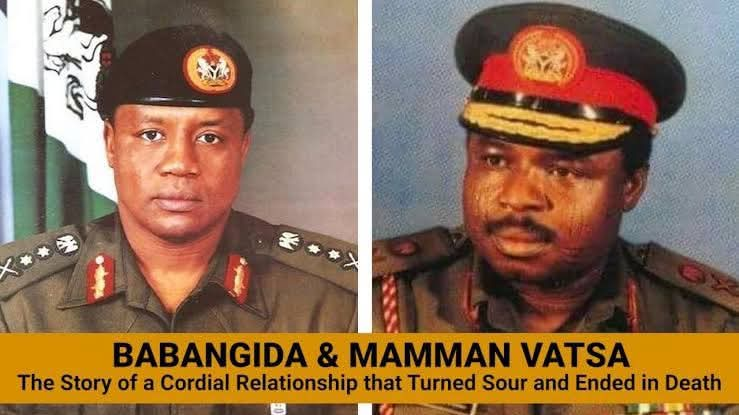The Vatsa Coup: A Betrayal That Shook Nigeria's Military Leadership

By Zaharaddeen Ishaq Abubakar | Katsina Times
The 1985 coup that brought General Ibrahim Badamasi Babangida to power was followed by one of the most controversial treason trials in Nigeria’s history—the alleged coup plot led by General Mamman Jiya Vatsa. A close childhood friend and military colleague of Babangida, Vatsa was accused of orchestrating a coup against the young administration, leading to his execution in March 1986.
Rumors and Betrayal
According to Babangida, whispers of a coup began circulating in the early months of his government. Intelligence sources and close associates warned him about Vatsa’s alleged plot, but he initially dismissed them as envious fabrications. Despite Vatsa’s exclusion from the coup that ousted General Muhammadu Buhari, Babangida had appointed him as Minister of the Federal Capital Territory, a move that some military officers resented. Vatsa’s flamboyance and influence in Abuja even earned him the nickname "Emperor of Abuja."
However, as the rumors persisted, Babangida reported them to senior officers like Generals Nasko, Garba Duba, and Wushishi. Nasko confronted Vatsa, who denied any involvement. Yet, military intelligence continued its covert investigations, eventually uncovering what Babangida described as "incontrovertible evidence."
The Coup Plot Unfolds
The investigation revealed that Vatsa had allegedly paid several officers to facilitate the coup. One of the accused, Lt-Col. Musa Bitiyong, reportedly received ₦50,000. While Vatsa claimed it was to support a farm project, Bitiyong’s previous involvement in coup-related controversies worked against him.
Further intelligence uncovered chilling details of the plan. The coup plotters allegedly intended to bomb strategic bridges in Lagos, cutting off the mainland from the island to obstruct troop reinforcements. There were also plans to sabotage the Air Force’s capabilities, particularly at the Makurdi air base, and even an attempt to hijack or shoot down the presidential aircraft.
As the evidence mounted, Babangida admitted he struggled to believe the extent of his friend’s involvement. Vatsa, known for his love of poetry and literature, had shared a deep bond with Babangida since their childhood in Minna and their school days in Bida. Yet, Babangida recalled that Vatsa had always harbored a sense of rivalry, often showing envy over his career advancements.
Trial and Execution
Once the military tribunal concluded its investigation, the verdict was clear. While some lesser-involved officers had their sentences commuted, there was no clemency for Vatsa and the core conspirators. As senior officers, they were fully aware of the consequences of a failed coup attempt.
In March 1986, General Mamman Jiya Vatsa and nine other conspirators were executed. For Babangida, it was a deeply personal loss, but he maintained that national stability and the integrity of the armed forces took precedence over personal ties.
Legacy and Political Fallout
Vatsa’s execution remained a controversial chapter in Nigeria’s history. In the post-1999 democratic era, political actors attempted to revive the case as a tool against Babangida. Some members of the Vatsa family also supported these efforts, though they eventually faded over time.
Reflecting on the incident, Babangida acknowledged the emotional toll of executing a childhood friend but insisted that preserving national security outweighed personal considerations. The Vatsa coup, whether real or exaggerated, marked a critical moment in Nigeria’s military history, shaping the course of Babangida’s rule and the country’s political landscape.

